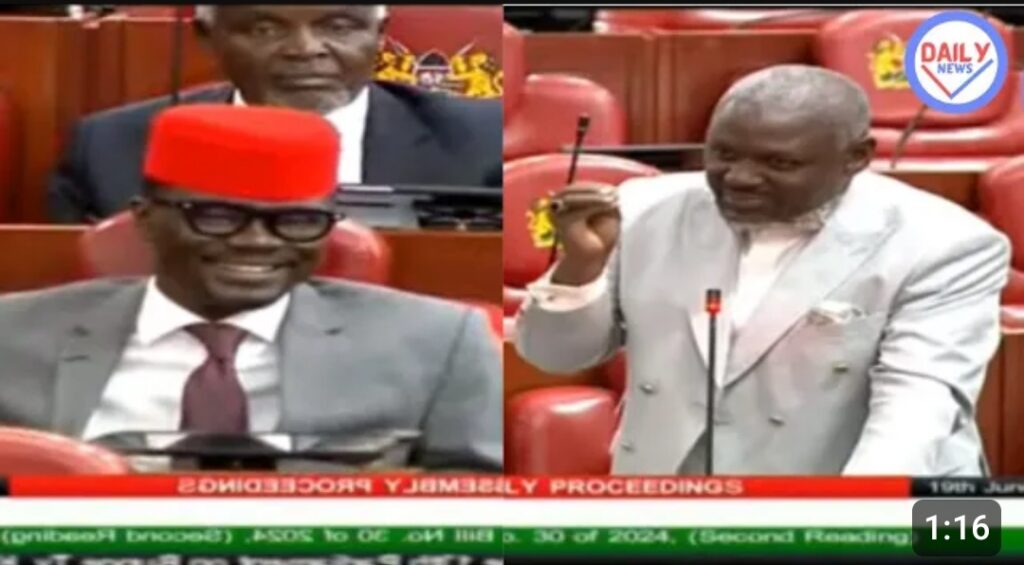During a heated session in Parliament, MP Otiende Amolo made a pointed remark towards his colleague, MP Didmus Barasa.
Amolo’s quip, “Stop wearing that red village sufuria on your head,” referred to Barasa’s trademark red cap, which has become a recognizable part of his attire.
The comment, though delivered with a touch of humor, underscored the often colorful and personal nature of political discourse in the legislature.
MP Barasa, known for his distinctive red cap, took the jibe in stride, defending his choice of headgear as a symbol of his cultural heritage and a reflection of his connection to the grassroots.
He emphasized that his attire was more than a fashion statement; it was a nod to the people he represents and a mark of his identity.
“This cap,” he retorted, “is not just a piece of clothing. It stands for the resilience and spirit of my community.”
The exchange highlighted the vibrant personalities that populate the political landscape.
While some viewed Amolo’s comment as a lighthearted dig, others saw it as an unnecessary distraction from the pressing issues at hand.
Nonetheless, it sparked a broader conversation about the role of personal expression in politics and the ways in which attire can convey deeper meanings and affiliations.
Observers noted that such moments, though seemingly trivial, can serve to humanize the often serious and formal proceedings of Parliament.
They provide a glimpse into the personal dynamics and relationships between lawmakers, offering a reminder that behind the debates and policies are individuals with unique backgrounds and stories.
As the session continued, the lighthearted banter was a brief respite from the usual intensity of parliamentary debates, demonstrating that even in the corridors of power, humor and personality have their place.


